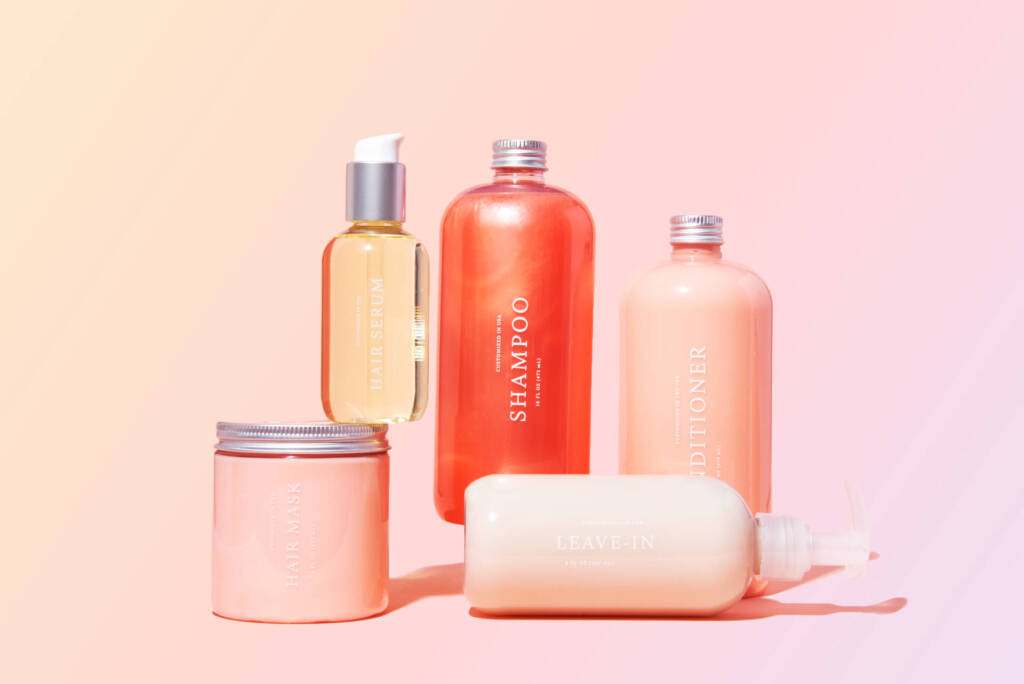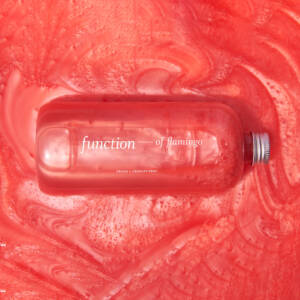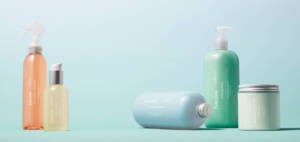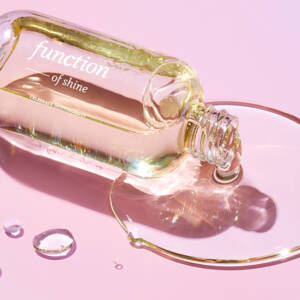Disclaimer: The information provided is not intended as medical advice. For any medical concerns, always contact your doctor.
Casually sweeping your hair from your face, your nose is assaulted by an odor that doesn’t smell at all pleasant. It’s not coming from your underarms or shirt. Instead, it’s your hair! What’s up with that?
At this point, you’re wondering, “Why does my hair smell?” While we’re well-acquainted with body odor (more than we’d like to be), not many of us realize that hair odor is a thing, too.
Ahead, you’ll learn why and how your scalp can give off a weird stink that makes your mane smell like a wet dog. Most importantly, we’ll highlight possible causes behind it and what you can do to address this unpleasant situation.
Your Body Is a Map of Scents From Head to Toe
Your armpits and feet aren’t the only body parts that emit odor. So do your scalp, and by extension, your hair.
The scalp is prime real estate to the apocrine glands (they reside in areas with hair follicles) and sebaceous glands (they produce the oily, waxy substance known as sebum). The former is less heard of, but apocrine glands basically secrete odorless sweat.
Yet, if the apocrine sweat and sebum don’t give off an unpleasant odor, why do your hair and scalp smell then? It’s all thanks to the bacteria living on your skin (yep, you’ve read that right). Before you rush off to the bathroom, you should know that it’s completely normal — and even as nature intended — for colonies of bacteria to live on our bodies.
Unfortunately, certain bacteria strains (case in point: Staphylococcus) feed on your sweat and sebum. With all the natural scalp buildup (read: apocrine sweat mixed with sebum and dead skin cells), it’s the perfect breeding ground for the bacteria living on your head rent-free. This leads to an unbalanced scalp microbiome, in which your roots raise a stink, literally.
So, does that mean we are doomed with a bad case of “smelly hair syndrome” all the time? Not quite. Some of us perspire and produce more sebum than others. Also, there may be situations when your body’s sweat and oil production kick into overdrive. (Cue those heart-pumping sessions at the gym!)
Why Does My Hair Smell? 7 Potential Causes
Here’s the hard truth: There are many answers to the question, “Why does my hair smell?” This makes it hard to pin down the exact cause(s). That said, we’ve pulled together a list of factors to help you narrow down the likely suspects. Of course, these are potential causes, not medical diagnoses. You should make an appointment with your dermatologist to get to the root cause of your hair odor.
1. Seborrheic Dermatitis
As if the physical discomfort isn’t enough, seborrheic dermatitis (SD) can cause scalp and hair odor, too. Scientific evidence explains that excess oil and yeast fungal overproduction are hallmarks of SD. If you recall, these are the exact conditions that worsen the natural buildup on the scalp, allowing bacteria to multiply.
2. Dandruff
Dandruff is the mild version of seborrheic dermatitis as it features a flaky, oily scalp. By nature, a chronic, inflammatory skin condition, dandruff represents an impaired scalp microbiome that gives odor-emitting bacteria free rein.
3. Psoriasis
Psoriasis is a dry skin condition that can affect the scalp. According to MedicineNet, this autoimmune disorder may come with a rank smell, especially if you suspect “a secondary bacterial or fungal infection on the affected skin.”
4. Hormonal Imbalance
Hormonal changes can indirectly lead to an icky-smelling ‘do due to increased sweat and sebum production.
For example, apocrine glands are largely inactive until you reach puberty. At that point, sex hormones stimulate the apocrine glands into action. These sweat glands also become active in the presence of the stress chemical norepinephrine.
On top of that, overactive androgen hormones typically lead to an abundance of natural oils. The excess sebum mixes with sweat and other types of scalp buildup, intensifying the odds of smelly hair.
5. Over/Under-Washing
If you’ve been skipping out on your wash days and relying on dry shampoo to tide you over, that could be one reason why your hair smells. The buildup of sebum, dead skin cells, sweat, and product residues marinate your roots, making it the ideal environment for bacteria to proliferate.
But over-washing isn’t the cure to eliminating smelly hair. Shampooing your mane too often can strip the natural oils from your strands, causing them to dry out. Consequently, your scalp compensates for the dryness by producing more sebum than usual. The excess oil doubles as extra nourishment for the bacteria living on your head.
6. Pollution
You may not have thought of it, but pollution could be the culprit behind funky-smelling hair. Although air pollutants are too minuscule to the naked eye, they cling to every inch of your body, scalp and hair included.
In fact, a 2017 study shows scientific proof for this phenomenon. It highlighted that air pollutants stick to the hair fibers, especially sebum-coated ones, for any length of time. In other words, you now have more scalp buildup to produce an unwanted odor.
7. Diet
“You are what you eat” is an oft-heard mantra, and it applies to your hair shafts, too. A recent study in the International Journal of Molecular Sciences explains that certain foods act as sustenance for bacteria to produce body musk that may smell unpleasant.
How to Address Unpleasant Scalp and Hair Odor
Why does my hair smell? Now that you know some potential reasons, it’s time to get down to what you really want to know — how to get rid of it. Instead of resorting to home remedies (which may or may not work), there are haircare products you can try to reduce unpleasant scalp and hair odor.
If you suspect skin, dietary, or hormonal causes behind your funky hair smell, your primary doctor or dermatologist may run specific tests for a more accurate diagnosis.
Pick the Right Haircare Products
While there are anti-dandruff shampoos that claim to have antifungal and antimicrobial ingredients to address dandruff or seborrheic dermatitis, always consult a dermatologist or other medical professional before using one of these products.
Meanwhile, those who do not have any skin conditions may do well with a clarifying, sulfate-free shampoo to help manage buildup without dehydrating your scalp. For example, our “soothe scalp” hair goal can help reduce buildup and minimize flakes. Pair that with the “nourish roots” hair goal for the appearance of healthier, fuller hair.
Wash at the Right Frequency
The right hair washing frequency is key to keeping your scalp clean without over-drying it. This way, bacteria don’t have a chance to over-produce and throw your scalp microbiome off-course.
As everyone’s hair type is different, experiment to find your ideal frequency. Need some help in this area? Learn how often you should wash your hair.
Simple tweaks in your shower routine can also help keep your roots clean and reduce the odds of smelly hair. Try to avoid hot water as much as possible as it can dehydrate your scalp and risk excessive sebum production. Besides that, work the shampoo into your roots and gently massage your scalp to effectively dislodge the gunk.
Apply Hair Serum
If you live in a polluted area, you may need more than in-shower products and a regular wash schedule.
A good option that comes to mind is Function of Beauty’s custom hair serum. This silicone-based styling product doubles as a heat protectant while offering protection from external elements like pollution and humidity.
What’s more, our hair serum is proven to:
- Reduce frizz by 70%
- Increase shine by 26 times more than untreated hair
- Improve detangling by 75%
- Thermally protect hair from damage up to 400 degrees
Simply put, it’s the proverbial cherry on top to promote the look and feel of healthy hair.
Your Mane Doesn’t Have to Smell Funky
Here’s the thing: you don’t have to let pesky hair odors land you in embarrassing social situations. Knowing that it can happen to anyone probably makes you feel a little better.
While there are many potential reasons why your hair might not smell like a rose, there are ways you can address the situation. Perhaps you need to dial down your hair-washing frequency or turn it up. Or perhaps you need to manage scalp buildup. Whatever the case might be, it’s always wise to seek the advice of a professional.
In the meantime, take our hair quiz to find products that you can customize to your specific hair type and hair goals.





